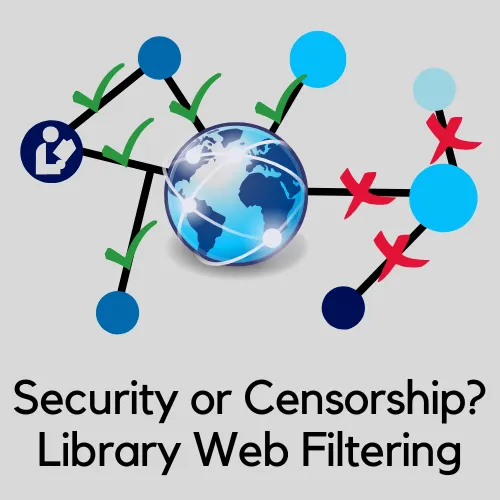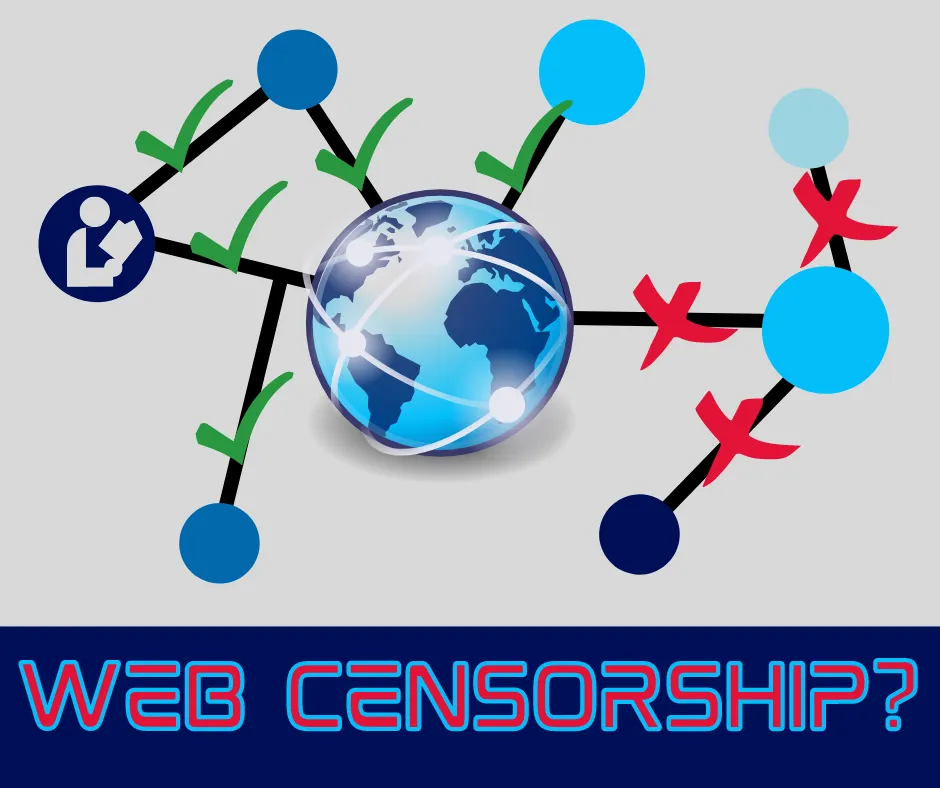Last week, it came to our attention that our library internet filter is censoring websites based on political bias. A patron mentioned an inability to access BitChute via our public WiFi. Personally, I have little interest in the site, as it seems to be a cesspool of the worst alt-right edgelords and conspiracy theorists, but I acknowledge there is also a significant contingent of users who want alternatives to the mega-corporations running Web 2.0.
Internet filters on library computers have been a hot topic ever since library internet access started. In 2000, the US federal government passed the Children's Internet Protection Act (CIPA). This requires schools and libraries receiving federal funding to bar youth access to obscenity, child pornography, and content harmful to minors. Many states have similar laws or policies as well. Obviously, the internet is a tangled web, so while we want to protect children, this can result in barring access to both legitimate and prurient content for adults, too.

Image made in Canva
Because of this conflict, the American Library Association (ALA) has been opposed to such legislation at state and federal levels. The ALA Freedom to Read Statement declares, "It is in the public interest for publishers and librarians to make available the widest diversity of views and expressions, including those that are unorthodox, unpopular, or considered dangerous by the majority.” Further, “It is contrary to the public interest for publishers or librarians to bar access to writings on the basis of the personal history or political affiliations of the author.”
Similarly, the dubiously-named but well-intentioned Library Bill of Rights is clear regarding freedom of access. "Books and other library resources should be provided for the interest, information, and enlightenment of all people of the community the library serves. Materials should not be excluded because of the origin, background, or views of those contributing to their creation."
The justification given for maintaining this censorship of BitChute was, “Harassment or bullying in matters of race, creed, color, national origin, gender, disability or sexual orientation.” Some content on BitChute is undeniably racist or opposed to the LGBTQ community, but this is not the sole or primary focus of the site. BitChute has been used by people labeled as “alt-right,” “far-right,” “conspiracy theorists,” and “disinformation,” but this is not grounds for library censorship. Allowing access to BitChute is not inherently harassment or bullying. Neither is it endorsement of the content there. Our job is to provide access, not police ideas.
Freedom of speech must apply especially to minority views if it matters at all. Those on the fringes are precisely the ones first to see their freedom of speech infringed upon, and all too often the response to disagreement is accusations of hatred to silence it instead of offering a refutation. Stifling dissent is antithetical to any standards of open discourse and public debate. Popularity is no measure of truth.

Lest you think it's only the loony left demanding this kind of nanny state nonsense, don't forget there are plenty of Karens on the right demanding we pull books they have never read because they're convinced libraries are scheming to promote all manner of deviant behavior, too. But that's a matter for another post....
Update: click here for an update to this story, or click here for the right-wing Karen post!

Original placeholder title image made in Canva
